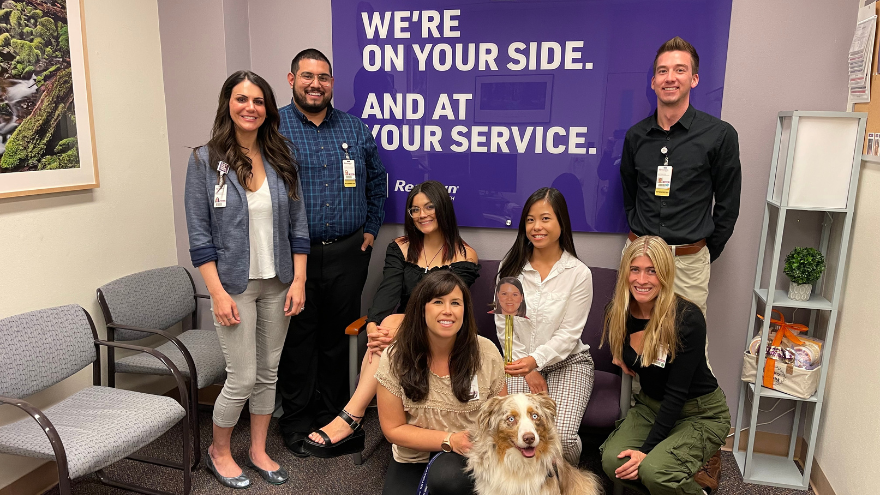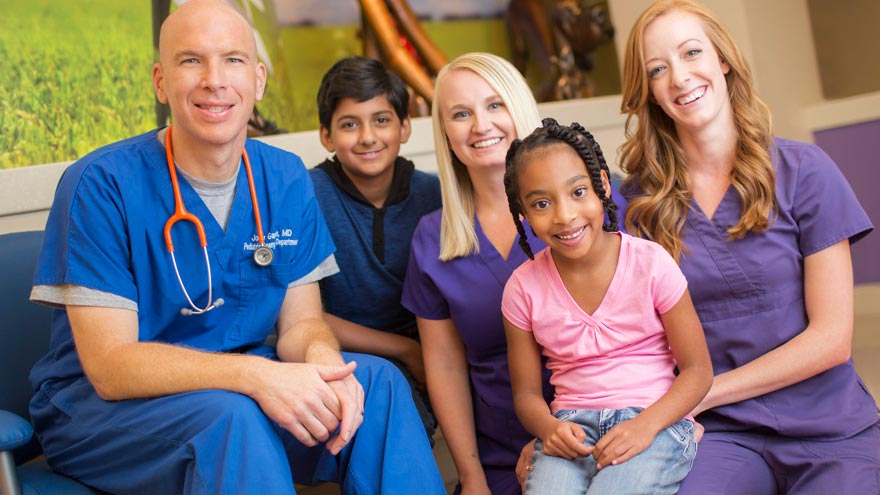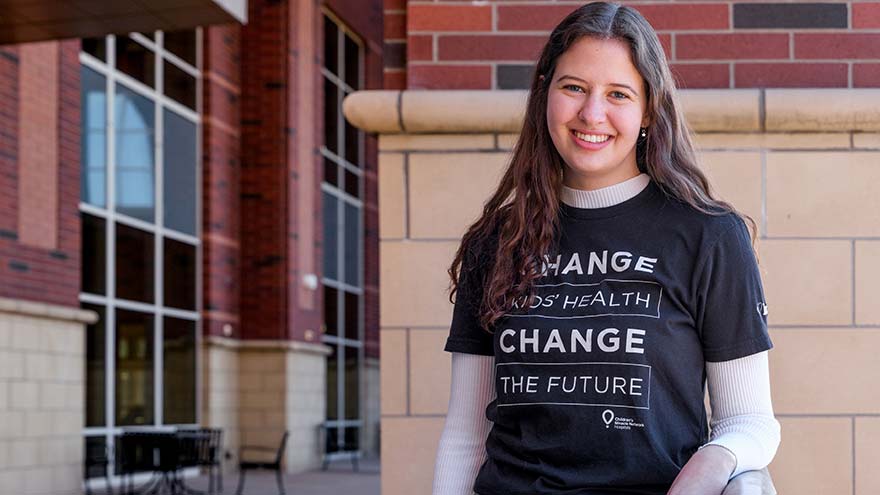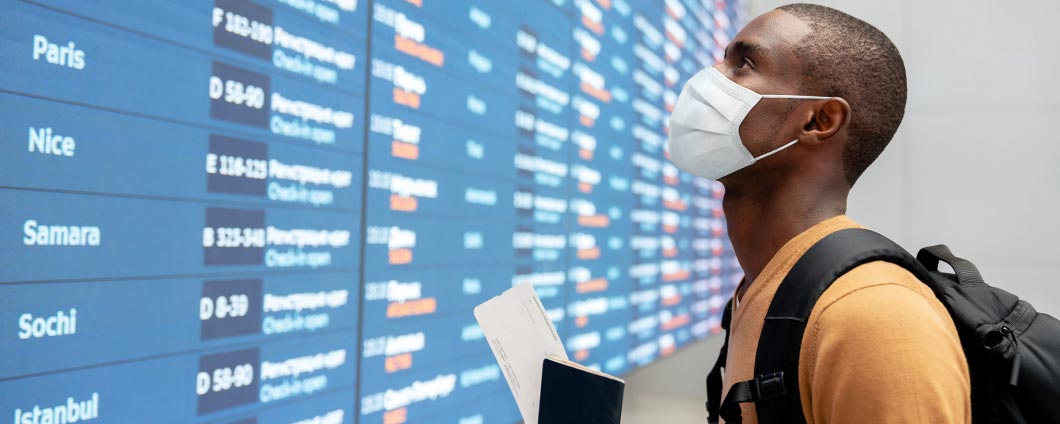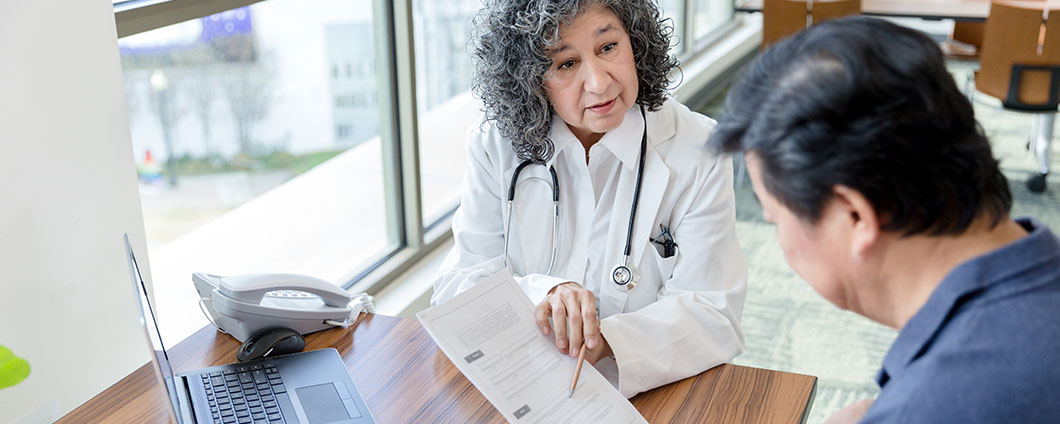Search
Results for 'what is an'
Clear-
How to Treat a Sprain or Strain
Injuries happen to everyone. They are caused by participating in sports, recreational activities like hiking, and even by accidentally stepping off a curb wrong. If you experience a sprain or strain, the first few days are often the most painful. Renown Sports Medicine physicians Luis Palacio, MD and Brandon Hockenberry, MD walked us through what to do after an injury. Listen to Your Body See a medical professional right away if: You know or suspect that a bone is broken You are having difficulties putting full weight on a joint of the leg Pain or swelling is severe There is a sign of an infection, such as redness and warmth in the joint The First 24-72 Hours Joint sprains tend to swell more than muscle strains. You can use ice as needed for comfort and to relieve any pain, but do not use ice for more than 15-20 minutes at a time. Ice and NSAIDs (such as ibuprofen) can help prevent excessive swelling and mask the pain, but they do not speed recovery. Some research shows that overuse of ice actually delays recovery. During the first 24-72 hours, your injury will go through an inflammation phase. Inflammation is your body’s natural way to dispose of dead tissue cells, build new healthy structures, and hopefully heal even stronger than before.
-
Workplace Violence: Protecting Healthcare Workers
Over the past year, the safety of healthcare providers has received more public attention than ever before. Throughout the COVID-19 pandemic – and particularly in the early days – the public learned about the vital role of personal protective equipment (PPE) and other important processes that keep healthcare workers safe and healthy. However, people may be surprised to learn that germs and viruses are just one of the many risks that healthcare professionals face every day. Many people are fortunate enough not to have to worry for their physical and mental wellbeing when they go to work. Unfortunately, this is not the case for countless healthcare workers across the nation, for whom workplace violence is a daily concern. According to the American Hospital Association, healthcare workers are four times more likely to experience serious workplace violence as people in other industries. This is particularly troubling knowing that healthcare workers have dedicated their careers to serving others, putting their communities first day in and day out. Responding to the Challenge of Workplace Violence At Renown, we have no tolerance for abuse against our employees. As an organization, we have several systems in place to support and protect our staff. During staff orientation, we provide classes to prepare employees to prevent and de-escalate verbal or physical abuse. We also offer ongoing education to train our staff to respond to violent situations. If an incident does occur, our violence prevention task force reviews incidents and ensures the impacted employees receive resources and counseling to help them process what has occurred. As a leader, I am continually impressed by our team’s desire and ability to support one another. However, I know that it is my responsibility to protect our team. No one should have to face harassment or abuse – in any form – in their workplace, and I think about the risks our employees face every day. I believe so much in this cause that I volunteer on the American Hospital Association’s Hospitals Against Violence steering committee, which works to understand the causes behind violence against healthcare workers and develops tools and processes to prevent these incidents from occurring.
Read More About Workplace Violence: Protecting Healthcare Workers
-
Do You Have Prediabetes? Three Things to Know
Most people don’t even realize their blood sugar is higher than normal on a daily basis. This condition means they are on the borderline of having Type 2 diabetes. Learn more about what it means to have prediabetes. Also learn risk factors for Type 2 diabetes and how it can be prevented. ‘Prediabetic’ is a term you may have heard before, but few understand what it means. Fewer still understand how to prevent the subsequent diagnosis of “diabetic.” Here are three things you need to know. 3 Facts About Prediabetes One out of three U.S. adults has prediabetes, yet don’t know it. Prediabetes means your blood sugar (glucose) level is higher than normal but not high enough to be diagnosed with diabetes. When you have prediabetes, your body still produces insulin, but the insulin is not as efficient at removing the sugar in your blood. So your overall blood sugar remains high — causing insulin resistance. People with prediabetes are at high risk for Type 2 diabetes, heart disease and stroke. If you become diabetic, there are further complications to your kidneys, feet, eyes and skin. Risk for diabetes increases with age. According to the Centers for Disease Control and Prevention (CDC), among adults ages 18-44, only 4 percent have diabetes. For ages 45-64, 17 percent have diabetes, and among those ages 65 years and older, 25 percent have diabetes. If prediabetes goes untreated, it often leads to Type 2 diabetes within five years. Current estimates indicate 1 in 3 Americans has prediabetes. Being overweight is risk factor for diabetes. Other risk factors include having high blood pressure, having high cholesterol, being inactive and giving birth to a baby weighing more than 9 pounds. You can prevent Type 2 diabetes with healthy changes to your daily nutrition and activity levels. Have Prediabetes? Here’s Help To reduce the impact of prediabetes and Type 2 diabetes, the CDC established the National Diabetes Prevention Program (National DPP), which provides the framework for Type 2 diabetes prevention efforts in the U.S. “The Diabetes Prevention Program is a program for people with prediabetes and is based upon a large study done by the CDC that showed that lifestyle changes are more effective in preventing the development of prediabetes to diabetes than medication alone,” says Stephen Compston, RD, LD, CDE, Renown Health Outpatient Dietary Educator. “This is a program where participants will learn lifestyle changes to improve their health and decrease their risk of developing diabetes in the future. The goal is for participants to lose 5-7 percent of their weight in the first six months, which was shown to decrease the risk of developing diabetes by 58 percent in the future.” Renown Health is offering this CDC-approved, 12-month program. Our lifestyle coaches will help you develop healthy eating habits, increase your physical activity and keep you motivated to make healthy lifestyle changes. Participating in the program will help you: Learn the skills needed to lose weight, be more active and manage stress Connect with a lifestyle coach for guidance and encouragement Gain support from other members sharing your goals
Read More About Do You Have Prediabetes? Three Things to Know
-
Simply Spectacular Sterling Silver Member Rhogenia
Whether watching a 4th of July celebration from her father’s boat on the Saint Johns River or sneaking a peek at a post-game display over Gator Bowl Stadium from her parents’ bedroom window, the fondest childhood memories of Sterling Silver Club featured member are of fireworks. “I love watching fireworks,” says Rhogenia. “And I get just as excited by them now as I did then.” Well, fireworks are certainly a fitting introduction to this Sterling Silver Club member who shines with a spectacular collection of accomplishments, adventures and interests. A Passion for Teaching Rhogenia remembers herself as a happy, carefree child “who read all the time” while growing up in Jacksonville, Florida with her younger sister, Rosemary, and her father and mother, who was a public school teacher. It’s easy to see how this natural enthusiasm for reading (and learning), along with her mother’s influence, would spark Rhogenia’s calling – and passion – for teaching. After earning her bachelor’s degree in education, Rhogenia spent the first 2 years of her career as a kindergarten teacher in a “one traffic light” town in her home state. She then moved to Oakland, California where she taught kindergarten and first grade classes at various schools for 4 years. The Biggest Little City in the World came next, and her stay there would last much longer. In Reno, Rhogenia added a master’s degree to her credits and found a home for her teaching career at Grace Warner Elementary School – where she taught first and second grade for 20 years! During that time, she also took on the additional role of adjunct professor, teaching graduate students for the University of Phoenix, College of Education. “A great teacher never stops learning,” explains Rhogenia. “I believe the art of teaching is the act of facilitating discovery, for students and also for myself.” In recognition of her efforts, Rhogenia received the Reno Gazette Journal’s Best of Education Award, the Washoe County Teachers Association Distinguished Performance Award, and was also awarded a grant from Learn and Serve America to help her support student programs that gave back to the community. Rhogenia’s favorite quote: “One hundred years from now it will not matter what my bank account was, the sort of house I lived in, or the kind of car I drove. But the world may be a little better, because I was important in the life of a child.” – Adapted from an essay by Forest Witcraft Commissions, Councils & Space Camp Life outside the classroom also kept Rhogenia busy – and inspired – throughout her career. In 1998, she was selected to participate in an educator externship, and in 1999, was chosen to be a teacher consultant to the Alliance Summer Geography Institute. These opportunities allowed Rhogenia to return to her students with exciting lessons to share about different types of industries and the importance of geography, respectively. In 2002, the governor appointed her commissioner for the state of Nevada’s Commission on Professional Standards in Education. And Rhogenia followed that up with an appointment to the National Council for Accreditation of Teacher Education in 2004. She also got to travel. Rhogenia was one of two teachers from Nevada chosen to participate in the Japan Fulbright Memorial Fund Teacher program on its 50th anniversary. Originally established in 1946 to foster mutual understanding between the U.S. and Japan, the trip allowed Rhogenia to represent her state, her country and her race to Japanese dignitaries, business people and students alike. For over three weeks, she toured schools, universities, factories, temples, art galleries and museums, and stayed in the home of a Japanese family for a few days – which she calls the highlight of her trip. Oh, and then there was the time she went to space camp! The Nevada Teacher in Space Program sent Rhogenia to join teachers from across the county at the out-of-this-world camp in Huntsville, Alabama. On “Team Endeavor,” she learned what it would be like to deliver payloads and perform experiments at the International Space Station, and took a seat in flight simulators and an antigravity chair. The goal of the program was to inspire teachers to help their students learn about the infinite possibilities of math and science. Time for What Matters These days, Rhogenia enjoys spending time on the things that matter most to her. Personally, that means diving into hobbies like genealogy, music, reading, writing, cooking and the occasional card or board game. She also continues to learn and broaden herself through Osher Life Long Institute (OLLI) classes and Retired Living Truth Series seminars. But her greatest joy comes from spending time with family – four generations of her own family, her church family, retired teachers from Warner Elementary and the many acquaintances and friends she’s come to know over the years. Other things worthy of Rhogenia’s time: Giving back to the community, rainbows, sunsets and sometimes, just watching the clouds roll by. Membership & Senior-ship What does Rhogenia think about being a Sterling Silver Club member and a senior? She told us. “Before COVID, it was the face-to-face club events that I liked most,” recalls Rhogenia. “At the Silver Stars Gala, I had such a wonderful time chatting with old and new friends… the fashions, decorations and the food were delightful.” Over the past year, she also found things to love about the club’s virtual events and regularly attends lectures, cooking and yoga classes and weekly meditation sessions – from her home! It Starts with Hello offers some of her favorite club events. “It reminds me of the television show, Cheers, where everybody knows your name!” she grins. “We meet at noon on Tuesdays and Thursdays. There are a variety of topics and guest speakers, and with the virtual events, I feel like the presenters are talking directly to me… I have the best seat in the house.” As far as being a senior goes, Rhogenia is living her best life and has some advice to help others do the same. “As a senior, I have the time to explore and take advantage of the many opportunities available out there,” she says. “I live life in the present and to the fullest. I make the most of each day because tomorrow, it will be the past.” Rhogenia feels that the biggest challenges for seniors today are health and isolation, and wants people to know there’s help if they need it. “Sometimes we need a little help to make everyday activities a little easier, or just need a person to talk with,” she explains. “My advice is never be too proud to ask for help with anything! Most people are glad to help or guide you to someone who will.” “Lastly, to seniors, I would like to say this: Love yourself and make peace with who you are and where you are at this moment in time,” Rhogenia continues. “And give yourself a big hug!” The Sterling Silver Club thanks Rhogenia for dazzling us with her story, her friendship and her collaboration – and we send her and all of our members a “BIG hug.”
Read More About Simply Spectacular Sterling Silver Member Rhogenia
-
Department Spotlight: Patient Experience
At Renown Health, our commitment to the experience of all our patients and guests is not just a mission – it's a way of life. Our unwavering dedication to creating exceptional experiences for the communities we serve is what sets us apart. Every day, we strive to build a service culture of excellence, one that ensures that every person who walks through our doors has an extraordinary encounter that exceeds their expectations. Renown’s Patient Experience department is the team that fulfills this mission and more. These passionate individuals intimately understand that top-of-the-line service involves the entire healthcare continuum, from the first phone call when scheduling an appointment to the final discharge and follow-up instructions and everything in between. With this collective dedication, Patient Experience is consistently on a journey to redefine what it means to leave a lasting impact in the minds of patients, setting a new standard for healthcare excellence in our community. Our In-House Jack-of-All-Trades It takes a village to ensure every patient and guest continues to have a positive experience at every Renown location and maintains trust in our providers and employees. Our Patient Experience team serves as the mayors of that village, encompassing four main aspects of healthcare service: Service Excellence: Compiles, reviews and resolves patient complaints and concerns to help with service recovery and identify opportunities for improvement. Volunteer Services: Enhances the patient experience by leveraging dedicated youth, adult and college-aged volunteers in a variety of volunteer programs, including pet therapy, healing arts, hospice and more. Language Access: Provides qualified interpretation and translation services to assist our limited- or non-English-speaking populations. Data Management: Uses patient experience data, research and surveys to prioritize system, location and unit-specific service needs to improve clinical and quality outcomes. “Because our department has many segments, no day is the same, which keeps the work week exciting,” said Shelbi Whitehead, Manager of Patient Experience. “Whether we are hosting a pet therapy parade for patients, de-escalating and rounding with upset patients to provide service recovery, offering interpretations for our Limited English Proficiency (LEP) patients, or managing data for the organization, we have one goal in mind: to enhance the experience for our patients and guests at Renown Health.” Cultivating a sense of community and fostering trust in our health system, the Service Excellence team steps in to ensure no concern goes unnoticed and every opportunity to make a positive chance is addressed. “My day consists of listening to patient concerns, connecting with different department leaders and providing support, and working on projects to improve processes,” said Julianne Revilla, Customer Experience Specialist. “To help enhance the patient experience, I round with patients on different floors to know more about their stay and experience with us. If they have any issues or concerns, I let floor staff know and do our best to resolve the issue in the moment.” “My team and I have an amazing opportunity to work with multiple leaders throughout the organization to resolve any patient concerns and provide valuable feedback on how patients are doing while using services that we offer,” added Ricky Garcia Sanchez, Senior Patient Experience Specialist. “A typical day will involve calling patients, rounding with patients, communicating with leaders to resolve events, handling grievances and staying in compliance with Centers for Medicare and Medicaid Services (CMS) guidelines.” “It’s all about hearing what is upsetting them and letting them know that we care about them,” added Shay Morgan, Customer Experience Specialist. “We ask ourselves, what is the main concern the patient has, and what is it they are seeking? From there, we do our internal investigation through Midas and send it to leadership, and then we find a reasonable and appropriate solution or response to let the patient know we are looking into their concern.” As the only not-for-profit health system in the region, Renown depends on the dedicated service of our volunteers. Our Volunteer Services team deploys volunteers across many programs who make a significant difference in the lives of patients and their families. “On a typical day, I may be going between the volunteer information desks assisting that team with anything that comes up while they are helping guests,” said Wendy Peukert, Volunteer Coordinator. “We find wheelchairs for departments, provide guest escorts, deliver flowers and mail to patients, locate doctors’ appointments or anything else that helps someone that walks in the door. We ensure all our programs go smoothly by planning ahead while also being flexible to be ready for anything that comes our way and by keeping communication open with our volunteers. Patients and guests being greeted by friendly, knowledgeable volunteers who show empathy and care is my goal!” “Some of my best days at Renown are volunteering with my dog Moose, who is a certified therapy dog, and watching the healing he provides to patients and employees,” added Shelbi Whitehead. At Renown, we believe that language should never be a barrier to receiving care. Our Language Access team ensures that this goal is realized through providing expert interpretation and translation services. “Renown has many different resources we use to ensure LEP patients and visitors receive a positive, quality visit to our health system,” said Seth Rubin, Supervisor of Language Access. “With signage strategically placed at front desks and check-in areas, patients can point to their preferred language, and we can use the Language Line iPads, phone lines or a dual-role Qualified Medical Interpreter to communicate with the patient or visitor. Within EPIC, we can also set a patient’s preferred language indicating to Renown staff what language to use with the patient and prepare forms in that language. I always ensure all patients are provided with these proper language services, and I also help with employees taking our online interpreter certification course, as well as help when a department needs new Language Line equipment. Additionally, I enjoy meeting with community groups to stay informed on community updates, events and trends around language, immigration and more.” Renown values and utilizes the opinions of our patients across all corners of our health system Maintaining service transparency is a promise, and that promise is fulfilled by our Data Management team, who use all the research and survey tools at their disposal. “My daily work includes a lot of updating scorecards across the network, working with the tech teams to ensure the patient data is getting to the right places, training leaders, analyzing market data and maintaining the reports that go to every corner of Renown,” said Brooke Cyphers, Market Data Analyst. “Through a partnership with our patient satisfaction survey vendor, PRC, Renown ensures data integrity, neutrality and credibility in surveying patients in all our care areas. The data from completed surveys are compiled and disseminated to our providers and leadership at all levels with the goal of transparency and patient-centric practice. These surveys are incredibly important to process improvement directly targeted at addressing areas that have been mentioned by our patients. I love it when people reach out to dive into a particular initiative they want to track or an issue they want insights on.” In their relentless pursuit of excellence in service across many programs, the Patient Experience team remains steadfast in their commitment to delivering the highest quality care and experiences.
-
3 Ways to Foster the Wellbeing of LGBTQIA+ Kids and Teens
Ensuring a healthier and more inclusive future for LGBTQIA+ children and teens is of utmost importance to health systems in our community, especially Renown. Supporting the physical and mental health of youth in this community is key to those efforts, especially as they face unique challenges in terms of identity acceptance and social integration. Dr. Caroline Barangan, Adolescent Medicine Physician with Renown Children’s Pediatric Specialty Care, discusses what you as a parent, caregiver, friend or support system can do to be a safe space for children and teens who identify as LGBTQIA+. 1. Create a Safe Space at Home The most important action you can take for your LGBTQIA+ teen or child is to accept and support them for who they are, regardless of how they identify. “Being a teenager is already difficult enough, especially within the LGBTQIA+ community, which puts them at risk of being stigmatized, rejected and targets for bullying,” said Dr. Barangan. Your supportive words and actions can make a huge difference as a profound expression of love and understanding. Being patient and willing to learn are the foundations to a healthy and loving relationship with your LGBTQIA+ teen or child. 2. Encourage Regular Check-Ups with a Primary Care Provider (PCP) Establishing your child or teen with a PCP is not only important when an illness occurs but also for annual preventative visits and regular check-ups. “A primary care provider can screen for high-risk behaviors that would put a patient’s health in jeopardy, such as sexual experience, substance use, suicidality and self-harm,” said. Dr Barangan. “These screenings are an opportunity to provide the education and support these kids and teens need to stay healthy.” One of the main concerns LGBTQIA+ youth often have is that they will experience judgment from their provider, or the PCP will disclose sensitive information, including their sexuality or gender identity to their parents, when they are not ready to do so. Dr. Barangan emphatically reminds us that this legally cannot happen. “If a patient asks me to keep something confidential, unless they disclose that they have plans to harm themselves or others, I am legally not allowed to share that information with anyone without their permission,” said Dr. Barangan. 3. Locate Local Resources Northern Nevada is home to a variety of resources for the LGBTQIA+ community at large, including youth members of this community. "Finding resources to help them develop in a positive way and provide them with the information they need, whether it be in school, the household, the community or through a medical or mental health provider, is incredibly important,” said Dr. Barangan. Below is a list of local LGBTQIA+ community resources open to you and your children: Our Center LGBTQIA+ Health Services at Northern Nevada HOPES Northern Nevada Pride Festival & Community Parade (happens every July in Reno) Sassabration (happens every September in Carson City) Lake Tahoe Pride (events and resources shared on Facebook) © alessandrobiascioli via Canva.com
Read More About 3 Ways to Foster the Wellbeing of LGBTQIA+ Kids and Teens
-
Snakes! 3 Safety Tips for Outdoor Adventures
Seeing a snake while exploring northern Nevada’s trails is somewhat rare and the chance of a snakebite is even less common. However, it’s important to make sure you’re ready for snakes and know what to do in case of a snakebite. Hiking the rugged, stunning and varied landscapes of northern Nevada is a huge draw for many who live here. But it’s important to stay alert and be prepared while you’re out exploring the natural habitats of wildlife, especially if you encounter a snake or get a snakebite. As you prep for your next outdoor adventure, remember these three tips to stay safe in Nevada’s wilderness. 1. Leave snakes alone In general, if you don’t mess with snakes, they won’t mess with you. Seeing a snake is fairly uncommon because of their body camouflage and secretive nature, which are their first defenses in evading predators. According to the Nevada Department of Wildlife (NDOW), most snakebites happen when a person tries to capture or kill the snake. Nevada is home to 52 species of snakes and reptiles, according to NDOW. Only six can be dangerous to people and pets: Western Rattlesnake (this is the most common type of venomous snake in northern Nevada, especially around Yerington and Fallon) Sidewinder Mohave Rattlesnake Speckled Rattlesnake Western Diamondback Gila Monster (these live in southern Nevada’s Mojave Desert) Venomous snakes, like the rattlesnakes, have a wide head and thick body. Non-venomous snakes are usually more slender and have a narrow head. If you see a snake on the trail and you aren’t sure if it’s venomous or not, it’s best to be safe and leave it alone by moving away slowly. 2. Wear the right gear and take care where you walk NDOW and the U.S. Department of Agriculture suggest doing the following to decrease your chances of a snakebite: Wear over-the-ankle boots, thick socks and loose-fitting long pants. Stick to trails and stay out of the bushes or tall grass. Don’t step where you can’t see. If going over a fallen tree or large rock, step on it. Don’t jump over it. A snake might be lying on the other side. Always check stumps or logs for snakes if you’re going to sit on it. If you see one or hear a rattle, move away from the area slowly. Don’t run or make any sudden movements. Don’t handle or move a recently-killed snake as it can still inject venom. And for your dog, the best way to prevent a snake bite is to keep it on a leash. 3. Know what to do (and not do) if you get a snakebite Renown Health primary care physician Aaron A. Bertalmio, MD, reminds us the odds of getting a snakebite are very low. Roughly 7,000 to 8,000 people get bitten annually and only 5 percent die according to the U.S. Food and Drug Administration. But in the event of a snakebite, here’s what to do: Get medical help as soon as possible Stay calm to help keep your heart-rate low Remove constrictive clothing or jewelry Clean the wound with soap and water if available Cover the snakebite with dry, sterile cloth or adhesive bandage if available Keep the bite snakebite area level and below your heart if possible WHAT NOT TO DO IF YOU GET A SNAKEBITE: Apply a tourniquet (a tool used to stop arm or leg blood flow) Ice the bitten area Suck out the venom You’re now prepped and ready on what you need to know about Nevada’s slithery friends so you can stay safe and enjoy the outdoors!
Read More About Snakes! 3 Safety Tips for Outdoor Adventures
-
Children's ER, Urgent Care or Wait it Out? Here's Your Guide
We’ve all been there: Your child gets sick right after urgent care closes — or worse, in the middle of the night. So do you wait it out, or do you load up and head to the Children’s ER? Pediatric Emergency Physician Joey Gassen, MD, with Northern Nevada Emergency Physicians, has insight. As parents, we often wish we had all the answers. And while a short-and-sweet comprehensive parenting guide is elusive, we can help if your questions involve whether to go to the children’s ER or wait it out. Here, a pediatric emergency physician explains when you should take your child to the Children’s ER at Renown Children’s Hospital, and what makes a children’s ER different. How do you know when it’s time to take your child to the ER? Having a sick or injured child is stressful. If you have a true emergency, you should go straight to the ER or call 911. When to go to the ER: Allergic reactions Asthma or severe shortness of breath Fever (infants less than two months old) Choking or poisoning Coughing up or vomiting blood Fainting, confusion or seizures Fractures or broken bones Head injuries Severe bleeding If you determine your child’s condition isn’t life-threatening but needs to be taken care of right away, urgent care is the best choice. Those conditions include: Cold and flu Coughs and sore throat Fevers Vomiting, diarrhea, stomach pain Cuts and severe scrapes Minor injuries and burns What is different about Renown Children’s ER compared to the adult ER? The difference starts when you first bring your child in. We have a lobby dedicated to our community’s smallest patients. The 24/7 lobby incorporates a child-friendly atmosphere with vibrant colors to help decrease anxiety that can accompany emergency situations. Our children’s ER also has equipment sized just for kids of any age. We offer a distraction machine, as well as games and movies, to help children cope with what can be a traumatic experience, like getting an IV. In addition, we have Child Life Specialists available to provide the emotional support to both children and their families. Why is it important to have an emergency room and lobby open 24/7 dedicated to children? Children aren’t just little people. They have special needs that require specialized care. Our children’s ER is staffed with skilled physicians and pediatric nurses certified in advanced pediatric emergency care to give your child the highest level of support. Renown Children’s Hospital From newborns to teens, Renown Children’s Hospital offers many different services and treatments designed specifically to take care of our community’s children. We provide a range of specialized services — from a dedicated Children’s ER and Pediatric ICU to a children’s imaging center and child’s asthma program. Explore Children’s Services
Read More About Children's ER, Urgent Care or Wait it Out? Here's Your Guide
-
Why Can't I Eat Before Surgery?
If you’re having surgery on your shoulder, why does it matter what’s in your stomach? We asked Dr. Matthew Hoberg to explain more about pre-surgery directives, including fasting. If you have an upcoming surgery, your care team likely gave you instructions to fast before your procedure. But why? We asked Matthew Hoberg, M.D., medical director of Renown Surgical Services, to explain why it’s important to forgo food and drinks before surgery. Why are patients instructed to fast before surgery? Regardless of surgery type or site, we want the stomach to be empty before having anesthesia, because anesthesia can reduce your body’s ability to protect and prevent food or acids from the stomach from entering the lungs. Normally, your body is able to prevent this, but anesthesia medicines make it harder for your body to do so. When food or liquids from the stomach get into the lungs, doctors call it “aspiration.” This is rare, but can be dangerous if it does happen. Solid foods and liquids leave the stomach at different rates too. Solid food takes longer to empty from the stomach than liquids, so the time to stop eating solids (eight hours) is longer than that for clear liquids (two hours). The body has energy reserves to produce needed nutrients and fuel during fasting. Recently, studies have shown it is important to stay hydrated and have some carbohydrates in clear liquids up to two hours before surgery, so clear liquids are allowed until two hours before surgery. There are also special rules for babies and young children who need surgery. For example, you may give breast milk up to four hours before surgery. If your baby drinks formula, you should stop six hours before surgery, and all solid foods you should stop eight hours before. Your child’s doctor or nurse will give you exact instructions. What if you show up for surgery and have broken the no-eating rule? Will surgery be re-scheduled? If patients have not followed the fasting guidelines, surgery will be postponed or rescheduled due to the possible increased risk associated with not having an empty stomach. The exception would be emergency surgery that cannot be delayed in which case special precautions are taken to help prevent anything from getting into the lungs. What other pre-operative rules should be followed to the letter? All instructions given to patients before their surgery or procedure should be followed. There are specific medical reasons behind all the instructions and they are designed for safety — to minimize risks, lower complications like infections and enhance the recovery process to help patients get back to normal as quickly as possible. Also, many patients ask if they should continue taking medications before surgery. The answer is: It depends. Your doctor or nurse will tell you which medicines you should take and when. Some medicines need to be stopped before surgery. But for others, it’s important you keep taking them as usual. You may also get new medicines to take before surgery. You may be asked to take some medications before surgery as part of advanced pain management protocols. If you need to take medicine right before your surgery, you can take it with a sip of water.
-
Why I Give: Sarah’s Story
As an avid soccer player, Sarah saw her fair share of doctors growing up. However, it wasn’t until she was diagnosed with celiac disease, an autoimmune disease affecting how the body ingests gluten, that she became passionate about healthcare. “I couldn’t figure out what was going on,” Sarah said. “I was getting sick, and my symptoms were getting worse.” Thankfully, after seeing a handful of doctors, she was on the path to recovery. “I remember being so relieved, and still am! Now I can focus on getting better,” said Sarah. The most important change people make after being diagnosed with celiac disease is the shift to a gluten-free diet. For many, Sarah included, living gluten-free is a lifestyle change. Thankfully, Sarah sees significant improvements in her health after adjusting her diet. “No one should just accept their symptoms as part of life,” said Sarah. Her increased awareness of health and nutrition motivated Sarah to study biology at the University of Nevada, Reno (UNR). “I want to be a pediatrician so I can help patients, especially kids, figure out treatment plans.” said Sarah who credits her experience living with celiac disease as her inspiration. Dancing for Kids’ Health Currently a senior at UNR, Sarah is a member of Phi Delta Epsilon, a co-ed international medical fraternity. Together with her classmates, she is bringing new energy and ideas to philanthropy. Sarah and the members of Phi Delta Epsilon are doing things differently and in many ways redefining what it means to give. This year, they are on a mission to raise funds for kids’ health at Renown Children’s Hospital. And they are doing this by dancing. The UNR Dance Marathon is part of the Miracle Network Dance Marathon, a student-led, year-round philanthropic movement that unites students across the United States and Canada. Collectively, they raise critical funds for Children's Miracle Network Hospitals. And Renown Children’s Hospital is our northern Nevada CMN partner hospital. Since 1991, over 400 college campuses and thousands of students have raised $300 million for kids. Sarah is the executive director of UNR’s chapter. “So far this year we’ve already raised $10,000 for Renown," said Sarah. Most of the fundraising happens on the day of the dance marathon. But throughout the school year, students hold mini fundraisers on campus and in the community. One hundred percent of the funds raised stay local, impacting Renown’s youngest patients. For every dollar donated, 18% helps provide charitable care, 15% goes to life-saving equipment, 12% supports medical research and 55% provides education, patient services and advancement services. “It's inspiring that we banded together to help kids in our community,” said Sarah. Last year they raised over $18,000. They are hoping to exceed that number at this year’s dance marathon in April.
-
Vaccines for Travelers
Infectious Disease – Travel Vaccine Program The Travel Vaccine Program, offered by Renown Medical Group, maintains a wide selection of vaccinations and prescribes medications you need to stay safe and healthy while traveling. Please call 775-982-4754 to get started! Travel vaccinations are provided on Wednesdays from 1:00 p.m. to 5:00 p.m. We recommend scheduling your appointment at least 4-6 weeks before your travels. This timeframe allows enough time for immunizations to take effect and fill prescriptions. We will accommodate last-minute travelers as best we can. What Our Travel Vaccine Program Provides Required and recommended immunizations Prescriptions to prevent malaria, traveler's diarrhea and altitude sickness International Certification of Vaccination (ICV) Stamps for yellow fever, as required for entry into some countries Letters of exemption for those with medical contraindications to vaccinations Record of immunizations for your primary care provider Infectious Disease Specialists Renown's specialized travel medicine providers have an extensive understanding of infectious disease and immunization needs based on geography, culture, and climate. Your individual travel needs will be considered, and customized advice will be offered based on health history, risk factors, travel destination, and itinerary. In addition, you'll receive recommended immunizations and prescriptions on the same day. Bon voyage! Please note that Renown's Travel Vaccine Program is not affiliated with the University of Nevada's Travel Medicine Program.
-
Spinal Surgery
Spinal Surgery at Renown When nonsurgical treatment doesn't show improvement for your back or neck pain, you might be considering surgery. Because preparing for back or neck surgery is different for everyone, we're here to make it easier on you. Our spine surgery program provides: A highly skilled care team including board-certified surgeons, anesthesiologists, nurses, therapists, case managers and a program coordinator. Education classes to prepare you and your loved ones for surgery. Physical and occupational therapy services. Effective pain management. Patient-centered care and caregiver training. If you require surgery for your condition, there are board-certified spine and neurosurgeons in our community who are credentialed to perform surgery at one of our locations. Check with your surgeon to schedule your procedure at Renown Regional Medical Center or Renown South Meadows Medical Center.




